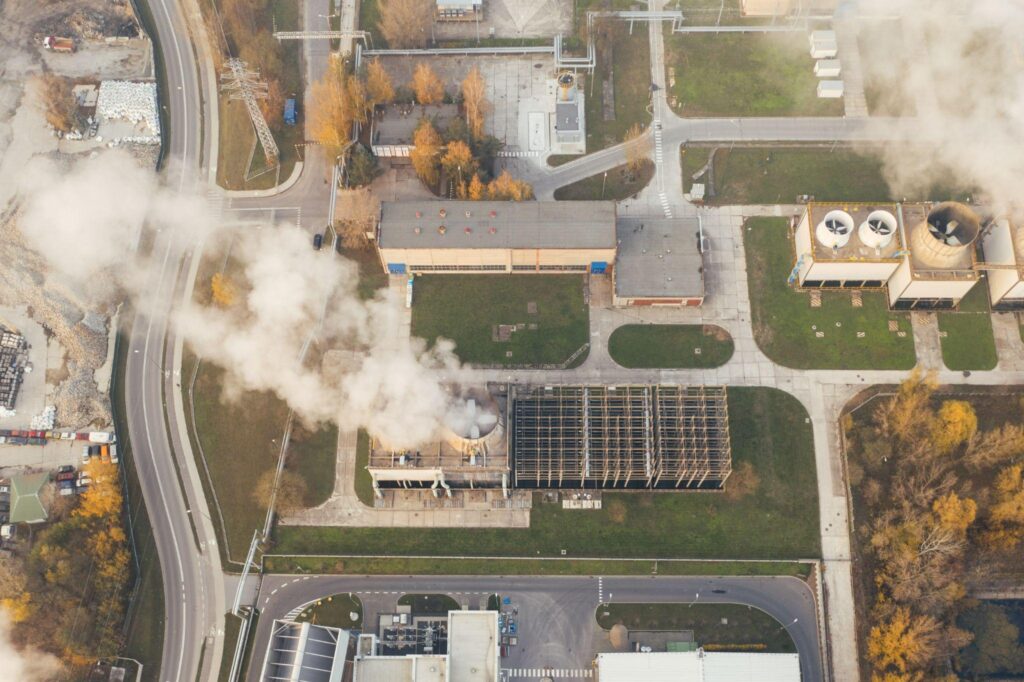One of the biggest threats to all life on Earth is global warming and climate change. And unfortunately, our continuous greenhouse gas (GHG) emissions, especially carbon dioxide and methane, are the reason behind these threats.

According to the UN Secretary-General António Guterres, if we don’t scale up our environmental efforts to mitigate the crisis as soon as possible, we may experience climate catastrophe. This phenomenon can cause the irreversible effects of climate change that will affect us all.
In line with this, a call for businesses to take urgent environmental actions arises. People demand that companies be accountable for their emissions and adopt sustainable practices. Thankfully, businesses are responding with corporate social responsibility (CSR).
In this blog, we’ll learn more about it and how methane emissions may impact your overall climate efforts. But first, let’s get a better understanding of how methane contributes to climate change.
Methane Emissions and Climate Change
While often overlooked, methane emissions are what’s driving climate change. Methane (CH4) is a powerful GHG that has contributed about 30% to global warming since pre-industrial times. Its ability to trap heat is what makes it even more potent than the most abundant GHG in the atmosphere—carbon dioxide (CO2). In fact, methane can increase the global temperature by about 84 times that of CO2 over a 20-year period.
The continuous emissions of this potent GHG can lead to more extreme disasters, such as rising sea levels, powerful cyclones, heat waves, and more. Aside from all of these, methane significantly contributes to the formation of ground-level ozone, which causes an estimated loss of 79–121 million tons of global crop production and a million premature deaths every year.
But where do methane emissions come from? You may ask. Methane emissions come from energy and industry, agriculture, and waste management activities. Thus, businesses must take a comprehensive approach that goes beyond the company premises—their supply chain—to help cut down methane emissions. And the only way to do that is by taking corporate social responsibility seriously.
What is Corporate Social Responsibility?
Corporate social responsibility (CSR) is a business practice that helps a company be socially accountable to itself, its stakeholders, and especially the public. It obliges businesses to consider the social, environmental, and economic impacts of their operations.
In the context of climate change, CSR requires an organization to be responsible for its GHG emissions. The goal, as set by the Intergovernmental Panel on Climate Change (IPCC), is to limit global warming to 1.5 °C above pre-industrial levels. And the only way to do that is by achieving net-zero emissions by 2050. Therefore, it’s crucial to cut down GHG emissions as soon as possible. If we fail to do that, more drastic climate events will come, which can wreak havoc on your company.
How A Company’s Methane Emissions Impact Corporate Reputation
With the climate crisis dominating headlines today, people are becoming more mindful of the companies they support. Customers and investors prefer businesses that take part in climate change mitigation. Thus, it’s crucial for businesses to make sustainable efforts to gain their support.
Knowing how harmful methane is, emitting a large amount of this GHG can have a negative impact on a company’s reputation. Your business can be seen as irresponsible and out of touch with environmental issues by customers, shareholders, and the public, in general. As a result, you might lose their trust and support, which has a direct impact on a company’s bottom line.
So, how will you respond to this? Take the lead and strengthen your climate efforts. To give you a better overview, we’ll give you some ways that you can incorporate into your CSR.
What Businesses Must Do
Define Your Goals
It’s important for businesses to set clear goals as it will guide them along the process. It provides a pathway and a sense of track when it comes to progress and accomplishments. And you can always start small, such as reducing the use of coal for your operations one at a time. By achieving small realistic goals, you’ll be motivated to do better and achieve more.
Do Climate Disclosure
Climate disclosure is an act that requires companies to disclose information about their contributions to the fight against climate change. It may cover the company’s carbon footprint, energy sources, hazards associated with climate change, and plans for reducing emissions. The objective is to show that you’re addressing climate change and being transparent about your efforts. And since you’re basically publicizing your climate efforts by doing climate disclosure, you’ll be more motivated to strive for the best. You may use the TFCD recommendations as your guide.
Manage Your Methane Emissions
The best way to manage your methane emissions is by first learning about their number. You must always measure your company’s methane emissions and know which part of your operation produces methane to address the problem properly. There are many technologies that can help you in this step, such as a methane watch. Once you quantify your methane emissions, you can begin planning how to reduce them.
As you know, methane is emitted in oil production and when organic materials are sent to landfills to decompose. Thus, by investing in renewable energy sources, smart technologies, and sustainable materials, you’ll be able to cut down a large number of methane emissions.
The Bottom Line
Methane emissions are something that we should not ignore, as they affect just about everything. In the business sector, companies must take corporate social responsibility and strive to reduce methane emissions as much as they do with carbon. On the other hand, people, in general, must transition to a sustainable lifestyle. With everyone’s help, there can be a bright and greener future ahead of us.
Leave a Reply